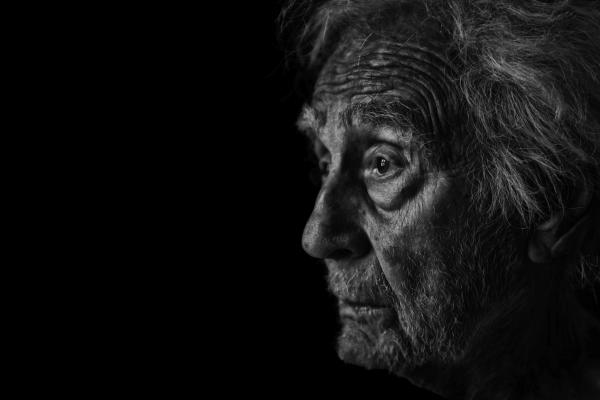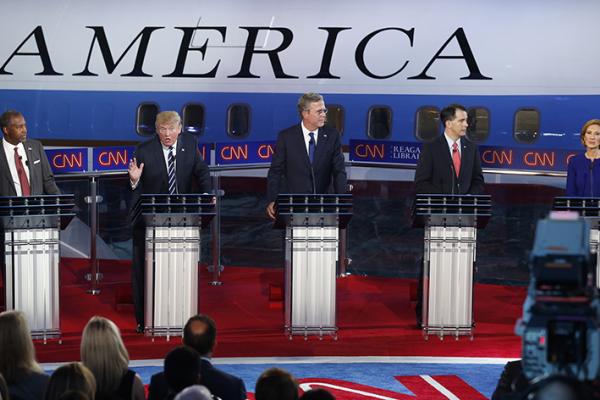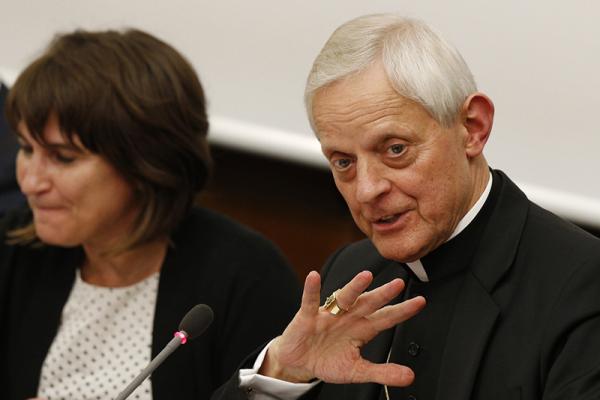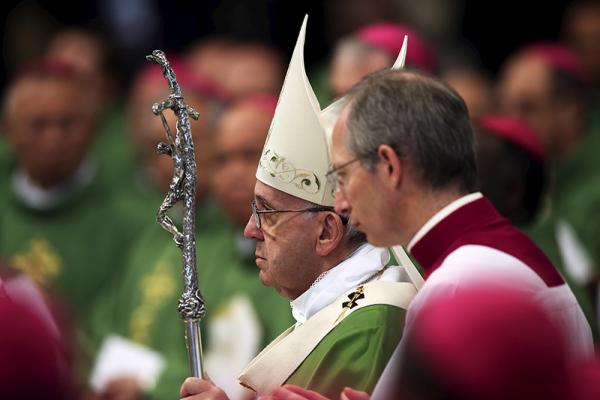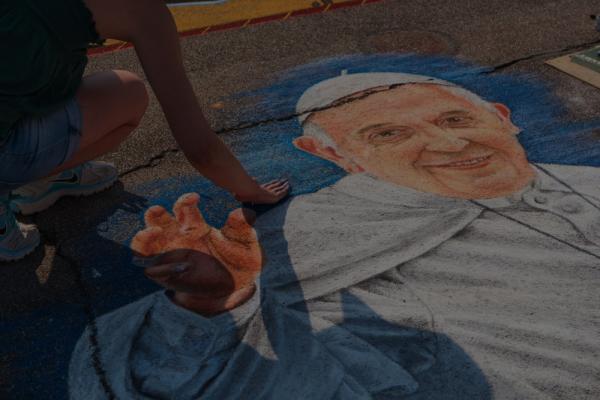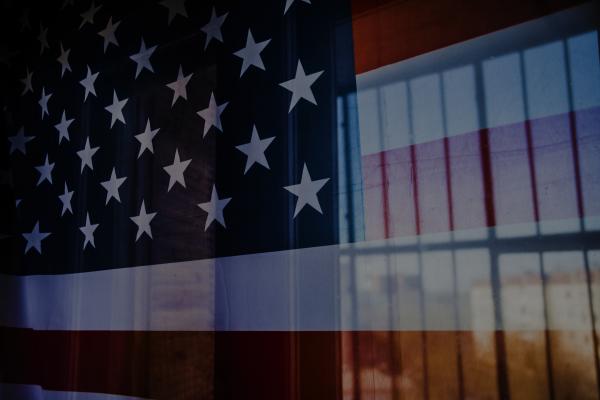The poetic prayers, songs, and laments of the book of Psalms were recorded to teach worshipers how to praise God, as well as to lament and grieve. When undergoing times of agony or when words are not enough, the Psalms can express the painful emotions for us, as processing emotion helps us to move forward with difficult choices.
Much of the Psalms were attributed to David, including the prayer of Psalm 55—a lament about suffering violence at the hands of a loved one. Many victims of abuse find themselves alone and abandoned by family and friends who become impatient and exasperated by their ongoing struggle with loving their abuser. Praying through a Psalm may be an emotional refuge during such a painful time.
Oct. 28 is the third debate for the Republicans, and since their last stage appearance, several have been ringing the religious liberty bell from one primary state to the next.
CNBC, which is hosting this debate, says the focus will be on economic issues when the mikes turn on at Coors Events Center at the University of Colorado in Boulder.
But that doesn’t mean God talk will be muted. Didn’t Pope Francis just sweep through, telling U.S. leaders about the moral dimensions of public policy?
“The frame of reference is now going to be: ‘What does the gospel really say here?’ That’s our first task.”
That’s Washington Cardinal Donald Wuerl summing up the new course for Catholicism set by the momentous Vatican meeting of 270 bishops from around the world that concluded last weekend, a three-week marathon in which he played a key role.
After often contentious talks on whether to adapt the church’s approach to issues such as divorce and cohabitation, the high-level synod succeeded in giving Pope Francis a document that offers him significant new flexibility in shaping more pastoral policies.
Pope Francis named two new archbishops in Italy on Oct. 27, seen as strategic appointments for the pontiff’s push to create a “poor church.”
Matteo Maria Zuppi will leave his position as an auxiliary bishop of Rome to take up his new post in Bologna, in central Italy. And Corrado Lorefice, a parish priest in the Sicilian city of Noto, has been named archbishop of Palermo.
Both are relatively young to receive such high office; Zuppi turned 60 this month, while Lorefice has just celebrated his 53rd birthday. But more importantly, the new archbishops have adhered to the pontiff’s wish to prioritize caring for the poor.
My thoughts go to the recent perilous journey of a close Iraqi friend — I will call him Mohammed — and his son, whom I will call Omar. Already the survivor of an assassination attempt, this trusted translator, driver, guide, and confidant received a death threat in early August. He fled under cover of night, taking Omar with him. On that same day, 15 men were kidnapped in his village. He left behind a wife and six other children.
From Baghdad, Mohammed and Omar fled to Kurdistan and into Turkey. Next they boarded a boat from Turkey to a series of Greek islands, where, much to their relief, they were at last able to get on a ferry to Athens.
Mohammed wrote letters throughout his journey. The messages that came were understandably brief. I often did not know what to advise him. But having lived with this dear family, I felt as if I were on the hazardous and exhausting 42-day journey with them.
What follows are excerpts from those letters.
My rabbinic colleague, David Saperstein, the U.S. ambassador-at-large for international religious freedom, issued a “glass half full” report earlier this month, noting that “… over the last several years there’s been a steady increase in the percentage of people who live in countries that … have serious restrictions on religious freedom.”
At the same time, he noted, “we’ve seen enormous expansion of interfaith efforts on almost every continent to try and address the challenges.”
Much of that “enormous expansion of interfaith efforts” can be traced to the historic Nostra Aetate (Latin for “In Our Time”) Declaration that the world’s Catholic bishops adopted 50 years ago at the conclusion of the Second Vatican Council.
At the conclusion of the most recent synod, Pope Francis encouraged bishops assembled to continue their journey. During this ongoing journey, Pope Francis warned against “hostile inflexibility” and to allow one’s self to “be surprised by God.”
Will seeking an understanding into the differences between civil and sacramental marriage help to diffuse church tension? Can religious and civil liberties peacefully coexist?
The words and actions of Pope Francis certainly indicate a desire to explore such a path. The question then becomes: will others follow him on this journey?
Secular and religious therapists will all say the same thing — in times of suffering, people want to be heard when they cry out. We don’t have to worry about saying the right things or solving their problems. In fact, imposing our words and answers upon them often just gets in the way of their healing.
But the corollary to being heard is to talk — to talk about our emotions and our pain. This is where our culture has problems. We’re taught to not be a “burden” on others. Few of us want to admit to ourselves or to others that we have pain and that we are vulnerable. We’d much rather handle it ourselves, put on a tough exterior, and bury our pain deep within.
But that doesn’t lead to healing. Rather, it leads to more harm, as our bottled up emotions explode during times of stress. Controlling our emotions by bottling them up never works in the long term. When we us that method, we soon discover that we don’t control our emotions — our emotions control us.
The Shema calls us into a different way of life. It invites us to listen to the pain within ourselves and within our neighbors. In doing so, we find healing. And we find very presence of God.
On Oct. 27, 1994 — 21 years ago today — the U.S. Department of Justice reported that the United States’ prison population had reached over 1 million people. By comparison, that’s the same size as San Jose, Calif.— the tenth biggest city in the US.
Today, the United States’ prison population is over 1.5 million — the size of Philadelphia, Pa., our nation’s fifth largest city.
Yet the size of our prison population — the largest in the world — is only part of the problem. Communities of color and poorer communities are disproportionally sentenced to prison — the result of systemic injustices including income inequality, school-to-prison pipelines, and racial profiling.
We mark many positive anniversaries here at Sojourners, but the work of justice also necessitates recognizing ongoing abuses of human dignity over time. So today, on the grim anniversary of 1 million people housed in our prison system, we choose to remember them and all those still behind bars. Here are ten articles we’re re-reading today about mass incarceration — and how to end it.
On the morning of Oct. 26, a student at Spring Valley High School in South Carolina was flipped out of her desk and tossed across the room by school resource officer Ben Fields.
Fields is already facing an outstanding lawsuit filed against him for "recklessly targeting African-American students with allegations of gang membership." But in 2014, Fields received a "Culture of Excellence" award for being "an exceptional role model to the students he serves and protects."
